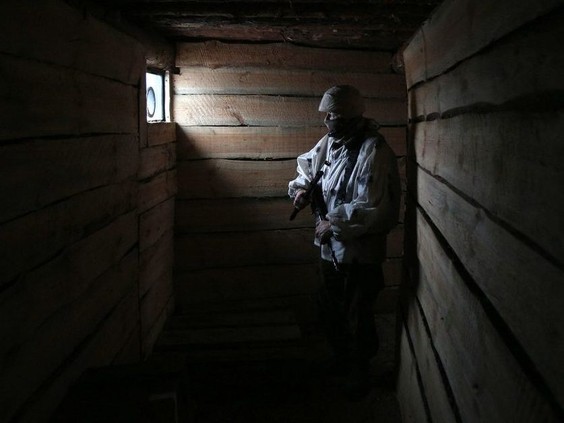Summit Meeting Reflects US Strategic Concerns
The White House issued a press release stating that the leaders of both countries publicly stated that they are “resolved to push back against the People’s Republic of China’s attempts to change the status quo in the East China Sea and South China Sea; underscored the importance of peace and stability across the Taiwan Strait and the peaceful resolution of cross-Strait issues; they shared concern about PRC practices in Xinjiang and Hong Kong.” Biden also praised the Reciprocal Access Agreement signed by Japan and Australia on Jan. 6, describing the agreement as beneficial in promoting trilateral defense cooperation among the U.S., Japan and Australia. The Reciprocal Access Agreement breaks down legal barriers, allowing the Japanese and Australian militaries reciprocal entrance for training and other objectives, with the implication of having a military alliance.
Biden said at a press conference on Jan. 19 that if Russia were to merely launch a “minor incursion” into Ukraine, the U.S.’s response would be lighter than if there were to be a full-scale invasion. This statement immediately triggered a fierce protest from Ukrainian President Volodymyr Zelenskyy. Biden changed his tune the next day, saying that if Russian troops violated the Ukrainian border and caused military or civilian casualties, the U.S. would make Moscow pay a heavy price.
However, since Biden had already publicly declared that he would not send troops to help defend Ukraine earlier, the price of a Russian invasion is, at most, more severe U.S. and European economic sanctions. Some analysts therefore point out that Biden’s gaffe may encourage Russian President Vladimir Putin to play his hand.
However, the bigger hazard is in the risk of the Russia-Ukraine conflict escalating. Since the height of the Cold War in the 1960s, the U.S. drew up what is known as the “two-war strategy,” requiring U.S. armed forces to be capable of fighting two different wars simultaneously on two different global battlefields. In the wake of the war on terror and other changes in the new security situation, this strategy is gradually failing to be mentioned in the 21st century. Now, the U.S. may again face the risk of coping with two simultaneous military conflicts in Europe and East Asia. Mainland China has continued to increase its military pressure on Taiwan lately, so if the Ukraine situation gets out of control there could be a related effect on the Taiwan Strait.
Against this background, the tough stance on China at the Jan. 21 summit meeting was not without purpose. The White House press release on the meeting repeatedly emphasized the importance of the U.S.-Japan alliance and also mentioned the role of geopolitical arrangements such as the U.S.-Japan-South Korea alliance, the U.S.-U.K.-Australia trilateral alliance (AUKUS) and the U.S.-Japan-Australia-India Quadrilateral Security Dialogue, in maintaining peace and stability in the Indo-Pacific. The focus on China by this series of U.S.-led security mechanisms could not be clearer. If one contrasts the different reactions of the U.S. and Western European powers to the Ukraine and Taiwan crises, it is not difficult to see the degree of importance they attach to the possibility of China using military force to seek unification with Taiwan.
Although Western intelligence agencies agree that the probability of Russia invading Ukraine is steadily increasing, the response of Western policymakers has been far from unanimous. Despite the U.S. increasing the supply of offensive weapons to Ukraine, its position of not dispatching troops to intervene remains unchanged. The U.K. and Germany have also publicly said that they would not dispatch troops to help in defense. However, late last year the U.K. sent the HMS Queen Elizabeth aircraft carrier group thousands of miles to the South China Sea to participate in joint military exercises with the U.S., Japan, Australia and other nations, the purpose of which was unstated but quite clear. Even Germany, ever sensitive about overseas military operations, sent the frigate Bayern to the South China Sea at the end of last year to participate in the joint military exercise. However, although the Taiwan situation has admittedly changed, it is not as pressing as the one in Ukraine.
This seems to indicate the significance of Taiwan to the Western world is comparatively far beyond that of Ukraine’s in Europe, and also shows that the Western world’s evaluation of the threat from China is far greater than that of Russia.
Taiwan’s status and importance as the global microchip capital are unquestionable; its strategic position as the first island chain to contain mainland China’s eastward entry into the Pacific Ocean is certainly also an area of contention. As the Ukraine crisis is heating up, the U.S. is still repeatedly making moves in East Asia, reflecting not only its judgment of the extent of the crises in both places, but even more so its judgment on which of them is particularly threatening to the U.S.’s global strategic interests.

